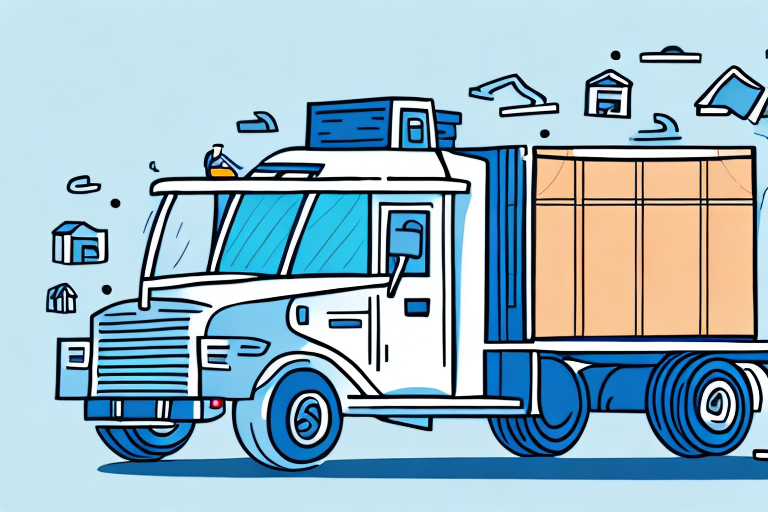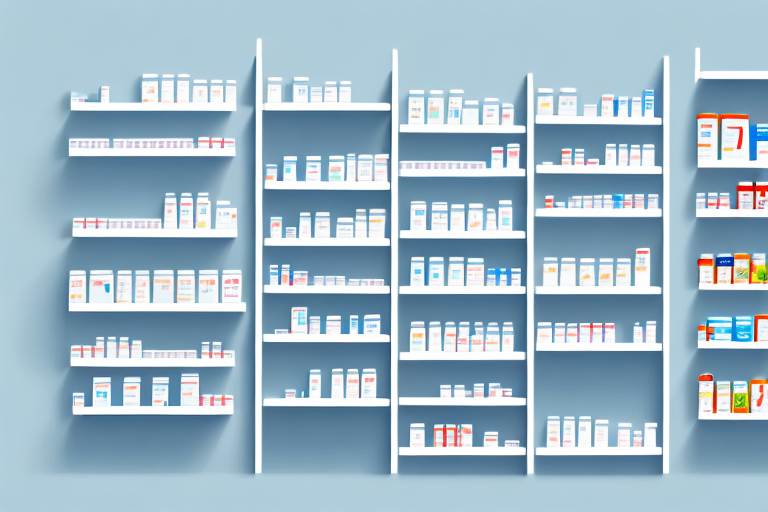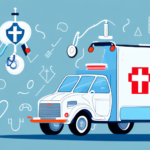Enhancing Patient Care with Medical Pick Up and Delivery Services
As healthcare providers continue to strive for improved patient outcomes, medical pick up and delivery services have emerged as a powerful tool for enhancing patient care. These services enable healthcare providers to deliver medical supplies, equipment, medications, and other essential items directly to patients' homes. In this article, we will explore the impact of medical delivery services on patient outcomes and healthcare providers, as well as the benefits they offer to patients and providers alike.
The Impact of Medical Delivery Services on Patient Outcomes
Medical delivery services significantly impact patient outcomes, particularly for those residing in remote or underserved areas. By enabling healthcare providers to reach patients directly, these services remove barriers to care and reduce the risk of missed appointments. Improved medication adherence is another critical benefit, as timely delivery ensures patients have access to necessary medications, leading to better health outcomes and reduced long-term healthcare costs.
According to a study published in the Journal of Medical Internet Research, patients who utilized delivery services showed a 20% increase in medication adherence rates compared to those who did not. This improvement not only enhances patient health but also decreases the overall burden on healthcare systems.
Furthermore, medical delivery services offer a more efficient and cost-effective method of delivering healthcare services. By minimizing the need for patients to travel to healthcare facilities, these services save time and money for both patients and healthcare providers. This is especially crucial in rural areas where healthcare facilities may be distant and transportation options limited.
Benefits for Healthcare Providers
Medical delivery services provide numerous benefits to healthcare providers, including the reduction of administrative burdens such as inventory management and supply ordering. This allows healthcare professionals to allocate more time and resources to direct patient care.
Cost Efficiency
Utilizing delivery services can significantly lower the costs associated with in-house supply management systems. For example, by outsourcing logistics, providers can eliminate expenses related to storage, handling, and distribution of medical supplies, leading to substantial cost savings without compromising the quality of care.
Improved Communication and Coordination
Delivery services enhance communication between healthcare providers and patients by ensuring that necessary supplies, medications, and equipment are delivered promptly. This reliable supply chain management fosters better patient-provider relationships and ensures continuity of care.
Additionally, in emergency situations, such as during natural disasters, delivery services play a critical role in transporting essential medical supplies swiftly to affected areas, thereby saving lives and mitigating disaster impacts.
Reducing Costs for Patients and Providers
Medical delivery services help reduce healthcare costs for both patients and providers by eliminating the need for frequent in-person visits and reducing the risk of missed appointments. This streamlined approach decreases overall healthcare expenses and enhances the efficiency of care delivery.
Patient Savings
Patients save money by avoiding transportation costs to medical appointments and reducing the need for expensive equipment rentals. For instance, home delivery of medications can decrease pharmacy visit costs and minimize the risk of medication errors, as providers can offer clear instructions and immediate support.
Provider Cost Reduction
Healthcare providers benefit from lower administration costs by outsourcing delivery logistics. Additionally, the ability to offer remote monitoring services through delivery programs can prevent costly hospitalizations and emergency room visits by enabling early intervention.
Increasing Access to Healthcare
Medical delivery services play a crucial role in expanding access to healthcare, especially for patients in remote or underserved regions. By delivering medical supplies and medications directly to patients' homes, these services eliminate geographical barriers and ensure that essential healthcare resources are accessible to all.
Improved Access for Chronic Patients
For patients with chronic conditions requiring frequent medical attention, delivery services reduce the need for long-distance travel to healthcare facilities. This convenience not only enhances patient comfort but also supports consistent management of chronic illnesses, thereby improving long-term health outcomes.
Furthermore, by providing timely delivery of medical supplies and medications, these services help prevent hospital readmissions, contributing to better patient health and reduced strain on healthcare infrastructure.
Ensuring Timely and Reliable Services
Timely and reliable medical pick up and delivery services are essential for ensuring that patients receive necessary care without delays. Delayed or missed deliveries can have severe consequences for patient health, particularly for those dependent on medications or medical equipment to manage their conditions.
Provider and Patient Benefits
Healthcare providers partnering with dependable delivery services can streamline their operations, reduce errors, and enhance patient satisfaction. Reliable delivery systems ensure that patients receive their supplies on time, fostering trust and adherence to treatment plans.
Emergency Response
In emergency situations, such as natural disasters or sudden health crises, medical delivery services are vital in transporting critical supplies quickly and efficiently. This capability underscores the necessity of partnering with reputable delivery providers who can respond promptly to urgent needs.
Technological Innovations in Medical Delivery
Advancements in technology are transforming the medical pick up and delivery services industry, enhancing efficiency and effectiveness in several ways.
Real-Time Tracking and Management
Modern delivery services utilize mobile apps and real-time tracking systems to allow patients and providers to monitor the status of deliveries. This transparency ensures that all parties are informed about the delivery process, reducing uncertainty and improving coordination.
Drone Delivery Systems
Innovative use of drones in medical deliveries is revolutionizing access to remote areas. Drones can transport medical supplies to hard-to-reach locations quickly, overcoming geographical barriers that traditional transportation methods cannot surmount.
Blockchain for Security
Some delivery services employ blockchain technology to create secure and transparent records of the delivery process. This technology helps prevent theft, tampering, and other security breaches, ensuring that medical supplies reach their intended destinations safely.
According to a report by McKinsey & Company, blockchain can enhance the security and efficiency of medical supply chains, making it a valuable tool for the healthcare industry.
Selecting a Quality Medical Delivery Service Provider
Choosing the right medical pick up and delivery service provider is crucial for ensuring the effectiveness and reliability of healthcare delivery.
Reliability and Timeliness
Healthcare providers should select providers with a proven track record of punctual and dependable service. Consistent timely deliveries are essential for maintaining patient trust and ensuring uninterrupted care.
Comprehensive Services
A quality delivery service should offer a wide range of services, including supply chain management, inventory tracking, and billing support. This comprehensive approach ensures that all logistical aspects are handled efficiently, allowing healthcare providers to focus on patient care.
Security and Compliance
Providers must ensure that their delivery partners adhere to all relevant regulations and standards, such as HIPAA and OSHA. Robust security measures should be in place to protect sensitive patient information and ensure the safe transport of medical supplies.
Customizable Solutions
Flexible and customizable delivery solutions are essential to meet the unique needs of different healthcare providers. This includes accommodating various types of medical equipment, different delivery schedules, and multiple locations to ensure optimal service delivery.
Success Stories: Healthcare Providers Utilizing Medical Delivery Services
Numerous healthcare providers have successfully integrated medical delivery services to enhance patient care and operational efficiency. These success stories highlight the transformative impact of delivery services on the healthcare industry.
Rural Clinic Improvements
Rural clinics have significantly improved access to care for remote patients by utilizing delivery services to supply essential medical supplies and medications. This has led to better health outcomes and increased patient satisfaction in underserved areas.
Streamlined Supply Chains in Large Health Systems
Large health systems have leveraged delivery services to streamline their supply chain management, reducing costs and improving the availability of medical supplies. This efficiency allows for better resource allocation and enhanced patient care.
For example, a case study by the Agency for Healthcare Research and Quality demonstrates how integrated delivery services can lead to substantial improvements in healthcare delivery and patient satisfaction.
The Future of Medical Pick Up and Delivery Services in Healthcare
The future of medical pick up and delivery services in the healthcare industry is promising, with ongoing advancements poised to further enhance patient care and operational efficiency.
Technological Advancements
Emerging technologies, such as artificial intelligence and machine learning, will continue to optimize delivery routes, predict patient needs, and personalize delivery services. These technologies will enable more efficient supply chain management and improved patient outcomes.
Expanding Reach and Accessibility
As delivery services become more sophisticated, their ability to reach an even broader range of patients will expand, including those in the most remote and underserved communities. This expansion will contribute to a more equitable healthcare system.
Integration with Telehealth
The integration of delivery services with telehealth platforms will provide a seamless continuum of care, allowing for comprehensive remote patient monitoring and support. This synergy will enhance the overall effectiveness of remote healthcare delivery.
Conclusion
Medical delivery services offer a range of benefits to patients, healthcare providers, and the healthcare industry as a whole. By enhancing access to care, improving patient outcomes, and reducing costs, these services enable healthcare providers to deliver more efficient, effective care to patients around the world. As we look to the future of healthcare, it is clear that medical delivery services will continue to play a critical role in shaping the industry and delivering better outcomes for patients.






















